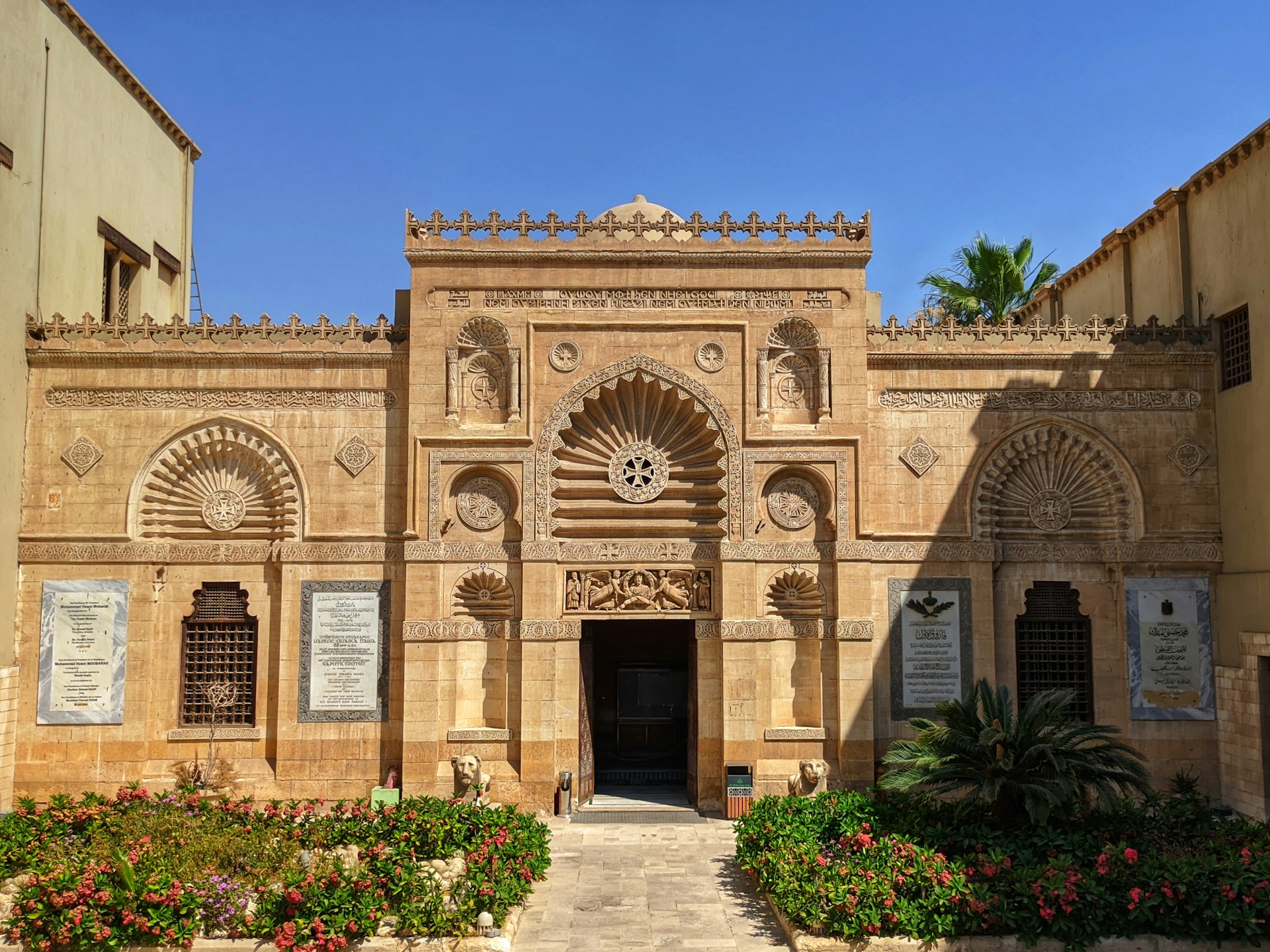Set within the historic Babylon Fortress and adjacent to the iconic Hanging Church, the museum is more than a stop on a tour—it’s a journey through Egypt’s layered identity, where Christian, Pharaonic, Greek, and Islamic influences converge.


Post Introduction
Set within the historic Babylon Fortress and adjacent to the iconic Hanging Church, the museum is more than a stop on a tour—it’s a journey through Egypt’s layered identity, where Christian, Pharaonic, Greek, and Islamic influences converge.
Post Content
Step into the heart of Cairo’s historic district and uncover a remarkable narrative woven through art, faith, and resilience—the story of Egypt’s Christian heritage, beautifully preserved at The Coptic Museum. This cultural gem, nestled in the heart of Coptic Cairo, invites visitors to explore centuries of devotion, creativity, and spiritual depth, all under one roof.
Founded in 1908 by the visionary Marcus Simaika Pasha, The Coptic Museum holds the world’s most comprehensive collection of Coptic Christian artifacts. From rare manuscripts and vibrant frescoes to ancient textiles and spiritual icons, the museum captures the soul of a civilization that thrived amidst changing empires and enduring faith.
🔹 Recommended : The Citadel of Qaitbay
Marcus Simaika Pasha established The Coptic Museum with a singular mission: to safeguard and celebrate Egypt’s rich Christian legacy. With the backing of the Coptic Orthodox Church and support from the Egyptian monarchy, the museum grew into a beacon for cultural preservation. For those interested in exploring Egypt’s broader heritage tours, check out our curated Best Egypt Tours Packages.
Today, its collection spans over 16,000 pieces, showcasing Coptic culture from the 3rd to the 19th century. Visitors can trace the evolution of Christianity in Egypt, from its early roots under Roman rule to its flourishing under Islamic leadership—offering context similar to that found in the National Museum of Egyptian Civilization.
The architecture of The Coptic Museum is as breathtaking as its exhibits. Featuring carved wooden ceilings, stained glass windows, and Islamic-inspired mashrabiya screens, the building offers a spiritual ambiance. Split into Old and New wings, the museum blends classical elegance with modern functionality, creating a harmonious setting for immersive storytelling. For architectural lovers, this evokes the charm of El Moez Street, another heritage-rich area in Cairo.
🔹 Recommended : Abdeen Palace
Among the museum’s most treasured items are its rare Coptic manuscripts, including selections from the renowned Nag Hammadi texts. These early Christian writings offer insight into Egypt’s theological history and monastic traditions. Illuminated Bibles and gospels, some dating to the 5th century, dazzle with gold leaf details and hand-painted illustrations. It’s an experience akin to discovering ancient art at the Ancient Egyptian Art Animals archive.
The museum’s icon gallery reveals scenes of Christ, saints, and martyrs depicted in vivid, emotionally resonant paintings. With serene faces and flowing robes, these icons are visual hymns of hope and devotion. Colorful frescoes, rescued from ancient monasteries, depict biblical narratives and early Christian life in vibrant detail—echoing the historic spiritual artistry you may also find near the Hanging Church.
Explore exquisite linen and wool garments woven with crosses, angels, and vines—each symbolically linked to eternal life and spiritual purity. These textiles reflect both religious devotion and artistic innovation. You’ll also find ceremonial objects like censers, incense burners, and crosses, along with everyday items that offer a glimpse into monastic and village life. Such cultural artifacts resonate with the handcrafted heritage showcased at the Papyrus Museum.
Situated in Old Cairo near the Mar Girgis Metro Station, The Coptic Museum is part of a heritage-rich district that also includes the Hanging Church, the Church of St. Sergius, the Ben Ezra Synagogue, and the historic Babylon Fortress.
Open daily: 9 AM – 5 PM
Affordable entry tickets with student discounts
Wheelchair-accessible
On-site guides and audio tours available
Visit during weekday mornings for a quieter experience. Pair your museum visit with nearby landmarks for a full-day historical tour—similar to the cultural outing provided by the Explore Cairo With iEgypt program. Bring a camera (no flash!) to capture the beauty of the space and artifacts. Allow at least 2 hours to explore fully.
The Coptic Museum doesn’t just tell the story of Christianity in Egypt—it celebrates Egypt’s inclusive identity. Here, ancient Egyptian symbolism, Greek artistic traditions, and Islamic aesthetics merge into a singular narrative that speaks to resilience, coexistence, and creativity. This cultural harmony mirrors the layered history found in Egypt, especially when exploring destinations from our Egypt and Jordan Tours.
For Egyptians and visitors alike, the museum offers a window into a world where faith and heritage intertwine, inviting exploration, appreciation, and connection.
1. When was The Coptic Museum founded?
It was established in 1908 by Marcus Simaika Pasha.
2. What is the Coptic Museum known for?
It houses the world’s largest and most diverse collection of Coptic Christian artifacts.
3. How long should I spend at the museum?
Most visitors spend 1.5 to 2 hours, though history buffs may want to linger longer.
4. Are tours available?
Yes. Guided tours and audio guides are offered in multiple languages. For a deeper exploration consider checking out the 4-Day Cairo Tour.
5. Is photography allowed?
Photography without flash is permitted in most exhibition rooms.
6. What’s nearby to visit afterward?
The Hanging Church, Church of St. Sergius, and Ben Ezra Synagogue are all within walking distance—ideal if you’re following our Egypt Travel Tips.
The Coptic Museum is a jewel in Egypt’s cultural crown—a sanctuary of knowledge, beauty, and reverence. Whether you’re a first-time visitor or a lifelong explorer of history, a trip to this extraordinary museum offers a profound, unforgettable experience, especially when combined with a well-planned itinerary through Egypt’s wonders with our Egypt Travel services.